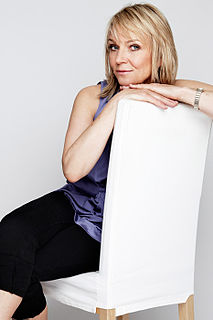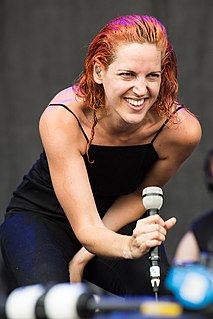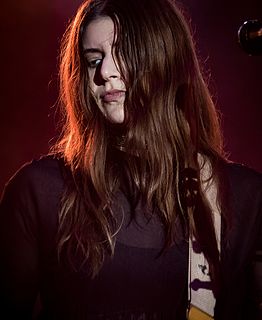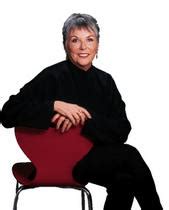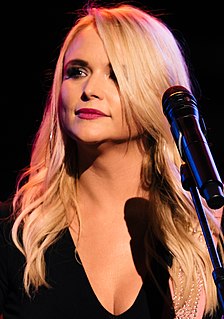A Quote by Helen Fielding
I think that when you're writing fiction what you're doing is reflecting life as you see it, and putting down how you think and how other people think, and the sort of confusions that you don't normally like to admit to.
Related Quotes
It's really cool to see how many awesome, badass ladies are out there now just doing their thing and putting their foot down, saying, "Nope. You're not going to tell me I'm doing something women shouldn't be doing." It's a scary time but also I think a really important time. I'm happy to see how much girls are responding to a lot of the other powerful big boys swimming out there right now.
I really think that if there's any one enemy to human creativity, especially creative writing, its self-consciousness. And if you have one eye on the mirror to see how you're doing, you're not doing it as well as you can. Don't think about publishing, don't think about editors, don't think about marketplace.
I have always been intensely uncomfortable with the idea of a science fiction writer as prophet. Not that there haven't been science fiction writers who think of themselves as having some sort of prophetic role, but when I think of that, I always think of H.G. Wells - he would think of what was going to happen, and he would imagine how it would happen, and then he would create a fiction to illustrate the idea that he'd had. And no part of my process has ever resembled that at all.
I think of my success as a kind of fluke. How else could I possibly think of it? And although it's a banal thing to say, I wrote my book because I was writing my book. At first I didn't know I was writing it, and one of the amazing things that happened as I was putting sentences down on paper is that some of the things that are most sacred and important to me rose to the surface of the prose.
I think that I had read so much fiction that the craft itself sort of sank into me. I didn't read any 'how to' books or attend any popular-fiction-writing classes or have a critique group. For many years into my writing, I didn't even know another author. For me, a lot of reading was the best teacher.
But I think writing should be a bit of a struggle. We're not writing things that are going to change the world in big ways. We're writing things that might make people think about people a little bit, but we're not that important. I think a lot of writers think we are incredibly important. I don't feel like that about my fiction. I feel like it's quite a selfish thing at heart. I want to tell a story. I want someone to listen to me. And I love that, but I don't think I deserve the moon on a stick because I do that.
I was raised by my mom. She taught me how to be a gentleman; nobody in the movies taught me. I think people are raised by their parents. If you're raised by movies, it's a whole other set of problems. I don't think it's as simple as me saying movies are meant to entertain, but I certainly don't feel moral responsibility in putting this out in the world and being like, "OK, this is going to affect how guys make decisions because they see some of my films or whatever." I just don't.
I think it's brain chemistry. I'm a positive, cheerful person, and I think it is absolutely the luck of the draw. I think the life I have had has come largely from the chemicals in my head. I see my life as good, and I think, a lot of times, if you see your life as good, then that's how it turns out.
